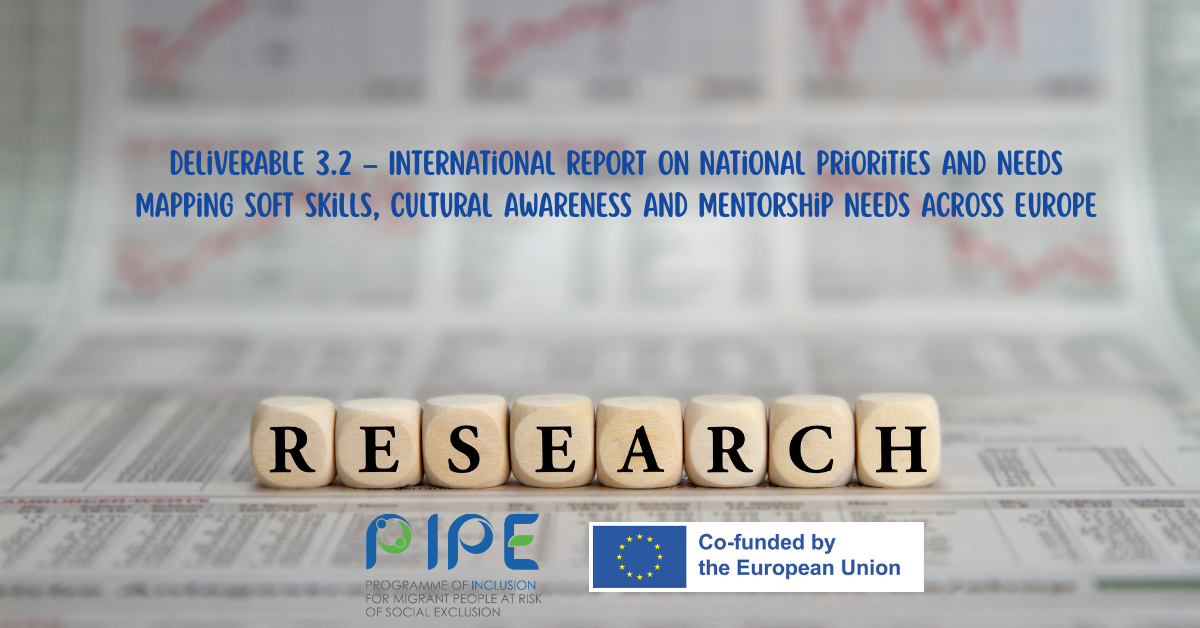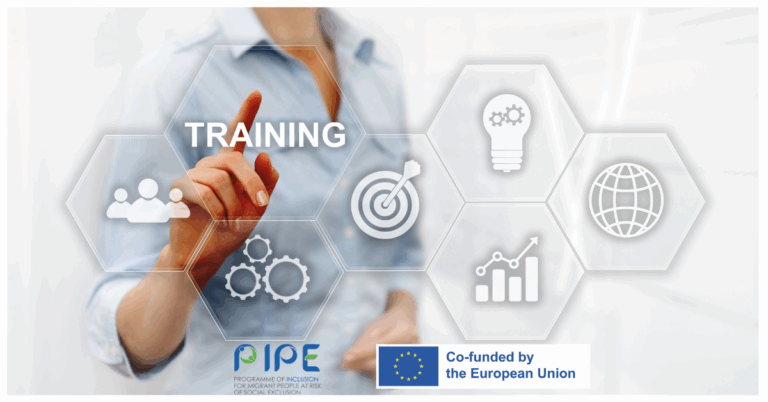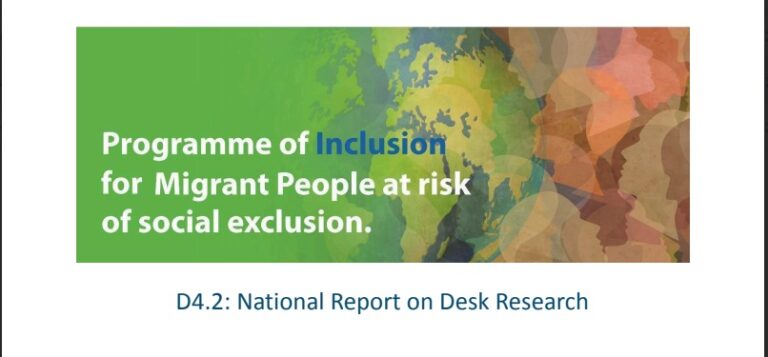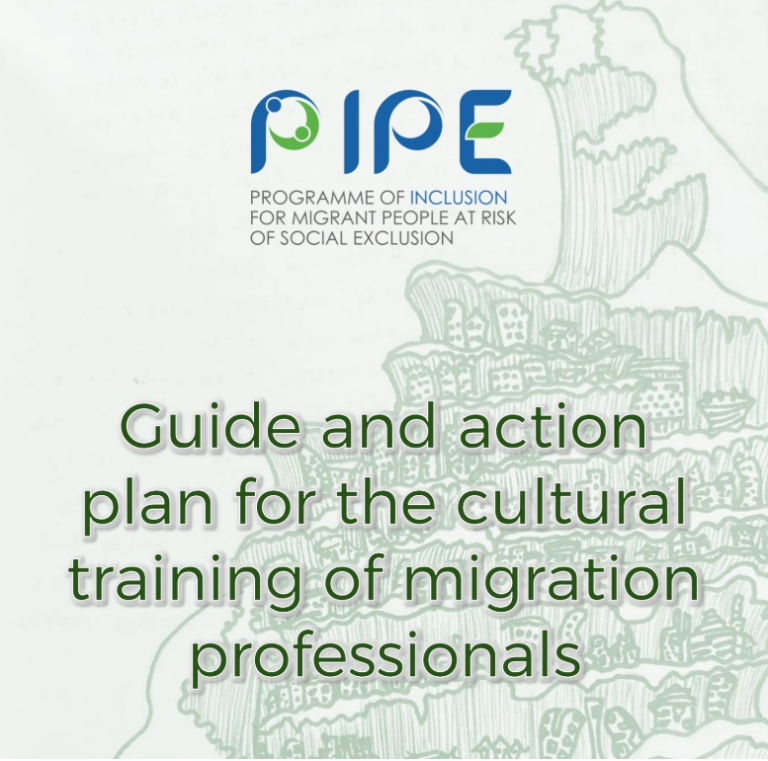Within the framework of the PIPE Project (Programme of Inclusion for Migrant People at Risk of Social Exclusion), Deliverable 3.2 – International Report on National Priorities and Needs offers a detailed, comparative analysis of how five European countries—Denmark, Germany, Greece, Italy, and Spain—address soft skills development, cultural awareness, and mentorship programs in the context of adult migrant integration.
The report is the result of extensive desk research carried out by project partners between 2024 and 2025. It aims to identify gaps, strengths, and national priorities in each country to guide the development of educational and support strategies tailored to migrants’ real needs.
Key Objectives of the Report
The research focused on four main goals:
- Identifying essential soft skills for the integration of adult migrants in different national contexts;
- Assessing the role of cultural awareness in enabling participation and inclusion in host societies;
- Evaluating the competencies most valued by employers and institutions in each country;
- Mapping existing mentorship programs for adult migrants, with attention to structure, accessibility, and effectiveness.
Key Findings
The findings highlight a widespread recognition of the importance of soft skills—such as communication, problem-solving, emotional intelligence, and teamwork—as critical to both employability and social integration. However, their formal inclusion in national training programs remains inconsistent. In some cases, soft skills are developed informally or indirectly, with limited targeted support.
On cultural awareness, the report notes that while all countries acknowledge its relevance, actual implementation varies. Successful initiatives tend to be community-based or led by NGOs, and often lack stable funding or integration into broader public policy frameworks.
Regarding mentorship, the research reveals both promise and fragmentation. Many countries host local or regional mentorship schemes—especially for refugees or newly arrived migrants—but these programs often rely on short-term funding and are not systematically embedded in national integration strategies.
The report also identifies barriers to access, such as language, lack of information, bureaucratic complexity, and mistrust toward institutions. Moreover, differences in national migration policies significantly influence the types and reach of available support.
Recommendations
Based on the data collected, Deliverable 3.2 recommends:
- Mainstreaming soft skills and cultural awareness into formal and non-formal migrant education;
- Creating or scaling up mentorship networks, ensuring continuity and institutional support;
- Improving inter-sectoral collaboration between public authorities, NGOs, and local communities;
- Sharing best practices across borders to foster common strategies and tools at the European level.
This report provides a strong foundation for the next phases of the PIPE project, supporting the co-design of educational pathways and mentorship systems that are flexible, inclusive, and grounded in the lived realities of migrants.
The full report is available at the following link





